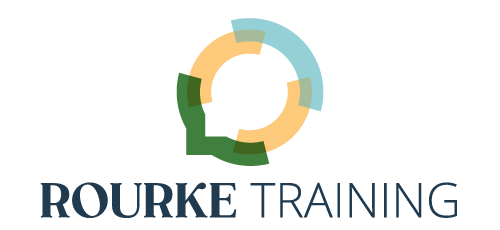Whether teams are fully remote or a hybrid work environment that combines remote and in-person positions, communicating and collaborating effectively while online has become a core business skill.
While articles with alarmist titles such as David Morel’s recent piece in Forbes (“Is It the End of Hybrid Working as We Know It?”) suggest the inevitable decline of a practice widely and hastily adopted during the pandemic, the overall status of remote and hybrid arrangements is secure for at least the short term in many offices.
Why? Consensus about best post-pandemic workplace practices hasn’t yet emerged
Lynda Gratton, an expert in organizational behavior and Professor of Management Practice at London Business School, points to an important reason why remote and hybrid work continues to be a key feature of the business landscape. She notes in Harvard Business Review that figuring out a post-pandemic workplace model is a process that will take longer than many expected.
As a result, Gratton says, “organizations and employees alike are finding themselves in an uncomfortably liminal state, unmoored from past ways of working but lacking a sense of how best to move forward.”
Employers who summarily require all employees to return the office risk eroding morale. Because assessing and testing best practices in such unsettled conditions requires time for patterns to emerge, employers should not only continue to support remote and hybrid work, but also invest in developing their teams’ online communication skills.
Also, remote and hybrid work environments can support recruitment & retention
Another factor keeping hybrid communication in the workplace: employee recruitment and retention. Deloitte’s Global 2023 Gen Z and Millennial Survey reports that work/family balance is a top priority for these two cohorts.
Three quarters of employees in these generations who currently work in fully-remote or hybrid arrangements would consider new employment if they had to work in the office full-time (15). Additionally, remote and hybrid roles support many companies’ efforts to reduce their carbon footprints and benefit employees’ mental health, two areas that were also of high interest for the participants in the Deloitte study.
Staying on the cutting edge of workplace policy and practice will help employers attract and retain top talent among the Gen Z and Millennial generations. As these employees rise in their positions, the value they place on flexibility will continue to shape policy decisions.
These three articles come to similar conclusions about the future of online communication and collaboration: that employers need to carefully experiment with and build upon what works for remote or hybrid roles. Flexibility is an increasingly important employee benefit that has the power to reinvent corporate culture.
This ties into a trend I’ve been seeing in which companies are looking for online communication coaching. Just because many employees had to move to remote or hybrid work during the pandemic does not mean that they are particularly good at presenting online. Talking to a camera while engaging with a remote audience takes practice in a low-stakes setting.
While all employers recognize the value of excellent communication and collaboration skills for team members as well as leadership, savvy firms are taking proactive steps to build a culture of practice and improvement.
What are you seeing?
What support for online speaking and presenting are you seeing in your office? Tell us in the comments.
Citations:
Deloitte, Global 2023 Gen Z and Millennial Survey May 17, 2023 (https://www.deloitte.com/global/en/issues/work/content/genzmillennialsurvey.html)
Gratton, Lynda. “Redesigning How We Work.” Harvard Business Review, 00178012, Mar/Apr2023, Vol. 101 Issue 2, p68-75. 8p.
Morel, David. “Is It the End of Hybrid Working as We Know It?” Forbes Jun 8, 2023 (https://www.forbes.com/sites/davidmorel/2023/06/08/is-it-the-end-of-hybrid-working-as-we-know-it/?sh=78769d0c6131)
Check Out Our YouTube Channel
The Rourke Training – Ongoing Mastery YouTube channel has a bit of something for everyone. Go there to get Kirsten’s take on examples of public speaking, as well as reflections on her entrepreneurial journey. The channel is also the home of the podcast Kirsten and Kellie produced for 5 years, Ongoing Mastery: Presenting & Speaking, which covers everything connected to continually improving your craft of being a public speaker, from interviews and mini-coaching sessions with guests to conversations between Kirsten and Kellie.
Come join us.


